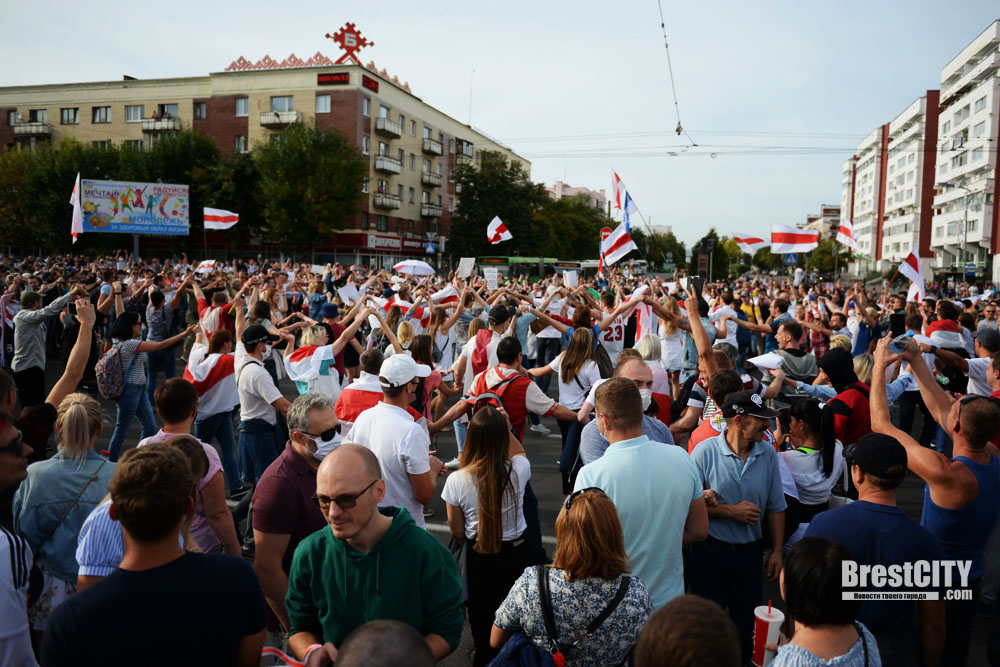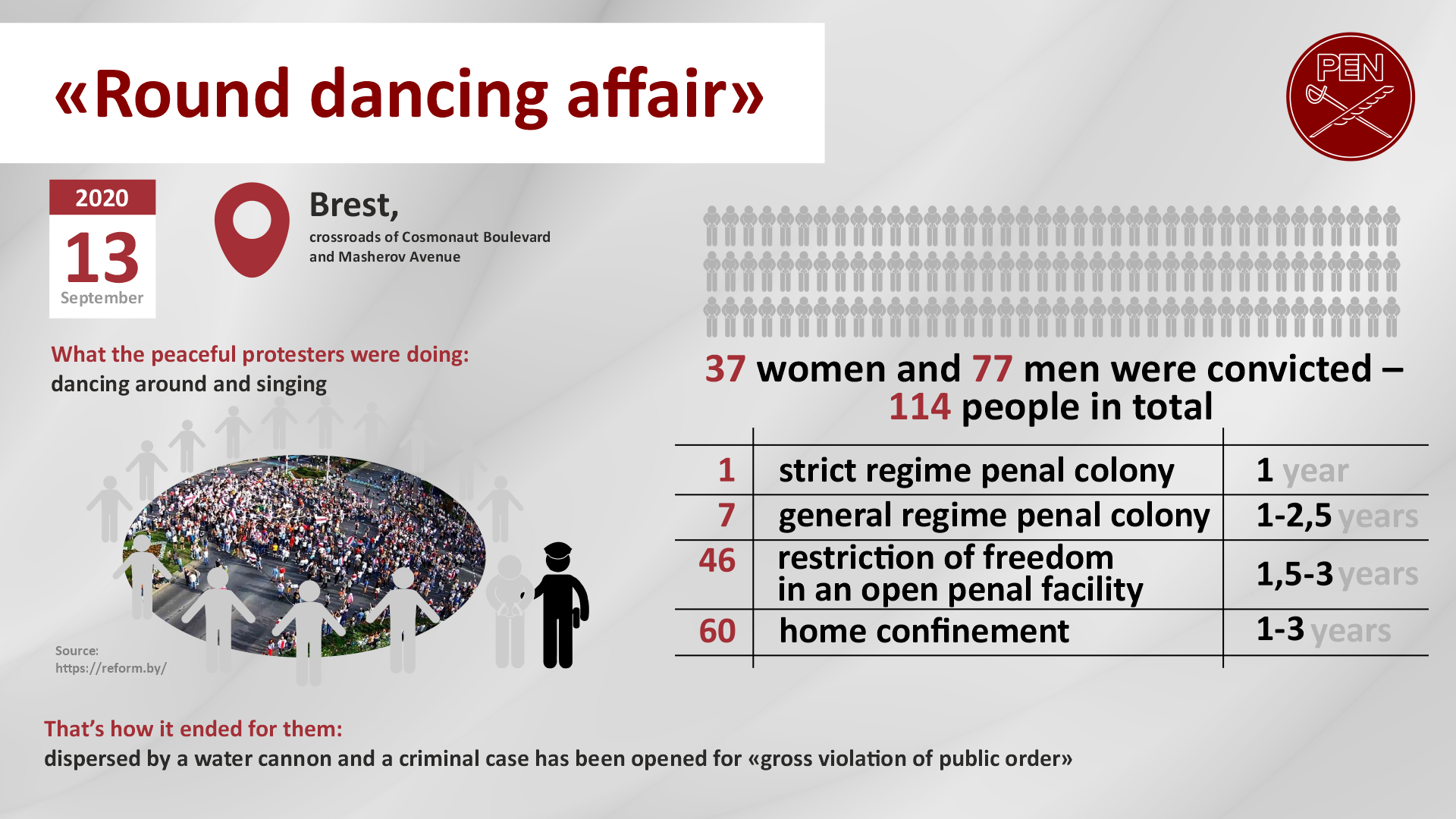
The statistics of the monitoring of cultural and human rights violations in relation to cultural workers, implemented by PEN Belarus, did not include the persecution of Belarusians convicted under the so-called “Round dance case.” Because the numerous protest actions of summer-autumn 2020 were so rich in creative manifestations and non-standard artistic participation by the public, we perceive the history of round dance primarily as a peaceful assembly, rather than a separate cultural act. However, we cannot altogether ignore it. Firstly, it is one of the largest “cases of political prosecution” in the history of Belarus. Secondly, the theme of the round dance — a classical ritual and folklore tradition of Belarus — was equated with extremism.
Thus, on September 13, 2020, at the March of Heroes in Brest, at the intersection of Boulevard Cosmonauts and Mašeraŭ Avenue, protesters danced, clapped their hands, danced and sang “Mury” (Walls) and ” Try čarapachi” (Three turtles). As a result, about a thousand participants of the peaceful assembly were dispersed by a water cannon and a criminal case was opened “on the fact of organization and active participation in group actions, grossly violating public order. The “damage” from the round dance was about 215 euros.
The first trial in the “round dance case” took place in Brest in January 2021, and since then 11 groups of defendants have been sentenced. As of the end of 2021, a total of 114 people had been convicted. Among them are two cultural figures: the poet Mikalaj Papieka and the literary activist Alena Hnaŭk.

